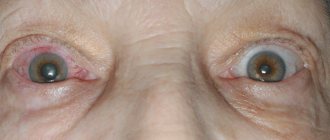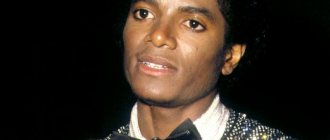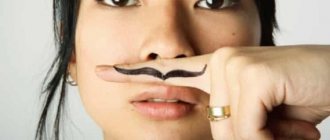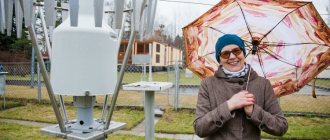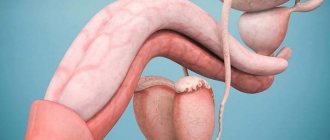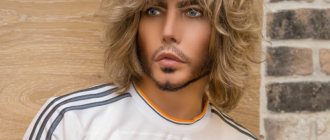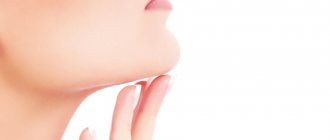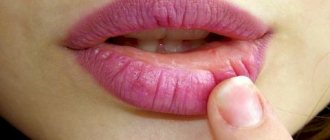Physiognomy is an amazing science that allows you not only to determine a person’s character, but also to look into the depths of his personality. Facial features can tell us about a person’s potential, personal tragedies that he still experiences within himself, and hidden illnesses. But the myth that you can predict the future by looking at your face is pure deception, as experts say.
An experienced physiognomist, with more than one year of work behind him, can easily read a person like an open book, but, alas, very few specialists have such knowledge. If you want to learn how to recognize a person's character by his facial features, you will need patience, attention to detail and some knowledge from the field of psychology. Physiognomists claim that it is quite possible to learn to recognize a person’s tendency to lie, anger, and cruelty.
Today we will talk about the structural features of the brow ridges in men and women. This seemingly insignificant detail can tell a lot about a person’s personality.
Anatomical structure and position
The brow ridges are located on the very crest of the frontal bone.
When examining the outer facial part of the human skull, you can find the frontal bone, which is one of the densest and hardest. On its crest near the lower part of the forehead there are small frontal tubercles. At their end, long and continuous brow ridges are noticeable. They protrude above each eye and have a straight or slightly curved shape.
The brow ridges are located on the very crest of the frontal bone. They are a conditional separator between the upper roof of the eye sockets and the lower part of the forehead. Main destination:
- create an obstacle to flowing sweat, which can damage the organs of vision;
- eye protection from small debris and wind;
- fixation of facial muscles.
According to anatomy, the brow ridges on the face begin from the temporal line of the zygomatic process and end at the frontal notch. Their length and severity are determined genetically and depend on the structural features of the skull. They connect in the middle of the bridge of the nose at one point.
Some scientists consider the brow ridges to be a vestigial human organ. They were more pronounced at the initial stage of development, which can be seen when examining large primates. According to the theory, this feature worked like a sun canopy. Among the unusual assumptions about the functions of the eyebrows is that the muscles under them increase resistance to chewing loads, relieve some of the pressure from the lower jaw, preventing the joint from hurting when compressed.
Other animals[edit]
Gorilla with frontal torus
The size of these ridges also varies among different primate species, both living and fossil. Humans' closest living relatives, the great apes, have a relatively prominent supraorbital ridge, also called the frontal torus
[3], whereas in modern humans it is relatively reduced. The fossil record indicates that the supraorbital ridge in early hominins decreased as the calvaria grew; The frontal part of the brain began to be located above the eyes, rather than behind the eyes, as a result of which the forehead became more vertical.
Differences in brow ridges in evolution
Evolution of the skull and brow ridges
In modern humans, the lower part of the frontal tubercles is less developed. This can be explained by the centuries-old evolution of the skull:
- various devices perfectly protect the eyes from the bright sun, so eyebrows began to play more of an aesthetic role;
- people spend less time outdoors and settle in regions with short daylight hours;
- The brain of a modern individual is larger in size, so the skull gradually changed its shape.
In people, more and more often the brow ridges are smoothed out or almost completely absent. But in representatives of the southern regions they are more massive, hanging slightly over the eyes. The Nordic race has the same structural feature: the eyebrow is pushed forward, the eyes are deep-set. The reason may be due to the windy northern weather of Denmark and Norway.
In Asian countries, a flat-type face with poorly defined frontal tubercles predominates. Residents of China and Japan have sparse eyebrows, but nature has provided eye protection with the help of the unique structure of the eyelid and deep seating in the eye sockets. In Slavic nationality, the type of eyebrow is classified as moderate.
Among the latest theories, supported by numerous studies, the large brow ridge in ancient man played the role of a morphological marker in behavior. This is a kind of designation of feelings, emotions, aspirations with the help of a raised or drawn eyebrow. The most developed muscles responsible for the movement of this part of the forehead are found in tribal leaders.
Recommendations after the procedure
- Don't be alarmed by the presence of swelling or bruising. After such a major operation, this is normal. All deviations will go away in 2 weeks. It is recommended to sleep on high pillows (this will reduce blood flow to the operation site).
- It is forbidden to wet your hair for 3 days after surgery.
- You can take painkillers only on the recommendation of a doctor. The headache may last for a week. The use of antibiotics is mandatory.
- The stitches are removed after about 12 days. It is forbidden to scratch the seams; you should be careful with the comb.
Important! If you observe swelling, severe bruising, pain, or infection, contact your doctor immediately.
Drink enough water to prevent the development of blood clots. Take seriously the issue of choosing a clinic and specialist. An inexperienced doctor can cause irreparable harm to your condition and psychological health. It is not uncommon to be disappointed with the results obtained.
Many patients idealize the image of their future appearance, and are very upset when they see themselves in the mirror. In the worst case scenario, severe scars may remain at the site of the sutures.
Difference between female and male types
The brow ridges in men protrude to a greater extent and are located along a horizontal line. This is due to the anatomical features in the structure of the skull and the level of testosterone during fetal formation. This is one of the important signs that allows you to distinguish the stronger sex when drawing up a verbal portrait. Artists also make this facial feature more pronounced when creating a painting or sculpture.
The structure of the brow ridge in women is significantly different. The frontal bone in this area is flatter, without strong convexities, and has practically no pits. This makes the eyes open and wide, giving the look an attractive look. In most cases, eyebrows are of medium thickness, do not droop, but are slightly raised towards the hairline.
Some women have no brow ridges. This is not a defect, but a congenital feature that affects the proportions of the face. The forehead appears flat, open and high, visually shifting the hairline.
Causes of eyebrow pain
In some cases, pain occurs in the brow ridges. As a rule, this is associated with the development of diseases of the sinuses: sinusitis, rhinitis or sinusitis. Inflammation is associated with the development of viruses or bacteria in the sinuses. To determine treatment, you should consult a doctor.
The cause of sinusitis is most often bacteria. The reason for the development of inflammation may be the following:
- adenoids;
- deviated nasal septum;
- not fully cured viral diseases;
- allergic reactions.
Nasal congestion and lack of discharge indicate inflammation; copious nasal discharge indicates the onset of the disease.
Pain in the eyebrow area can be caused by excessive stress on the body. Rest will help restore strength and relieve discomfort. In any case, you can’t leave things to chance; if the pain lasts, you should seek medical help. The earlier treatment is started, the better the prognosis. With advanced sinusitis, the pain in the eyebrow area will intensify and without treatment will turn into a bacterial form.
Types of eyebrows in physiognomy
The bony ridge above the eyes is often studied by physiognomists. They associate the peculiarity of their structure with the character and personal qualities of people:
- Well-defined and developed brow ridges in humans are more common among representatives of the stronger sex. They can talk about a firm and fair character, a desire to maintain order in all matters. Such traits are characteristic of leaders, military commanders and generals, and managers of large enterprises. A plan of action and resolution of difficult situations quickly emerges in their heads.
- The absence of brow ridges in a person can express internal flexibility and mean mental weakness. Such people, according to physiognomists, spontaneously solve problems, easily change preferences, but quickly implement ideas. This feature is typical for creative individuals who are not endowed with a mathematical mind.
When assessing character, physiognomists take into account the structure of the face, chin, and cheekbones. They take into account basic proportions to create a complete picture.
Forehead frontoplasty reviews
Zhanna, 40 years old. It’s annoying that everyone thinks: this operation is only needed after a sex change. I have not been happy with my appearance my entire adult life. Bad genetics, and nothing can be done about it; I never felt feminine. I am very pleased with the operation. After 2 months I simply can’t recognize myself!
The recovery was very difficult, I think this is due to my excess weight. Always follow your doctor's recommendations and take all medications prescribed to you. I stupidly decided not to take the antibiotic; I almost got tissue infection. Take care of your health. I am attaching my photos before and after the operation. You can safely have the operation.
Features of male attractiveness
Overhanging brow ridges in men indicate the ability to protect.
Many anthropologists, looking at the dynamic structure of the skull, are confident that the size of the brow ridges in a man is related to the level of testosterone. When forming strong-willed facial features, the hormone enhances the growth of bone tissue in certain areas and makes the chin expressive.
When meeting women, they subconsciously pay attention to certain facial features. Men with overhanging large eyebrows and a massive jaw look like stronger defenders. They hide powerful potential and physical endurance, which attracts girls.
According to doctors' observations, a child's eyebrow may be practically unpronounced. As they mature and testosterone levels increase, it begins to increase, becomes low, and the cushion above them becomes thicker and larger.
Eyebrows in men are an indicator of strength
Helen Fisher believes that a woman chooses her man based on the upper part of his face. The assessment is incredibly accurate. Masculinity is the main choice for a woman. The assessment occurs even if the rest of the body is hidden from view. From photos of brow ridges and eyes, women intuitively understand a man’s character.
The female gaze analyzes and critically perceives the information received. Prominent brow ridges indicate a high amount of male hormone, sufficient strength and a strong human immune system. According to studies, such men get sick less often and accept vaccines better.
Facial expressions and eyebrows in humans
For some people, arches give the face a gloomy or aggressive expression and make it unattractive to the opposite sex. Surgery to correct the shape of the eyebrows, which women often resort to, helps correct the situation. By shortening or cutting muscle tissue, the doctor corrects the shape and lifts it above the eye sockets.
The procedure helps get rid of wrinkles and remove drooping eyelids. You can correct the brow ridges in women with safe exercises that improve muscle nutrition and restore their elasticity and tone.
Carrying out the operation
- After passing the necessary tests and confirming the absence of contraindications, a day for surgery is scheduled. The operation is performed only under general anesthesia.
- A zigzag incision is made in the area where hair growth begins. Next, the periosteum and skin are raised to access the sinuses of the forehead and bones. All skin flaps are held with special clamps to prevent large blood loss.
- The surgeon opens the frontal sinus, smoothes the bony edges and removes the bridges. Using cutters, excess protrusions of the frontal bone are removed. After checking the nerve connections, all fragments are returned to their place and fixed with special glue.
- The last stage is the return of the skin flaps to their place and their correct tension. After this, stitches are applied.
The operation takes about 4 hours, depending on the complexity.
Forehead and character
In profile, the forehead can be flat or convex; in the front view, it can be in the shape of a quadrangle, circle, long or with a sharp top; and in size, the forehead can be low, medium or high, as well as narrow and wide.
1. High, rectangular forehead
Owners of this type of forehead are distinguished by their extraordinary intelligence, practical acumen, determination, calmness, common sense and prudence, and excellent organizing abilities.
2. High round forehead
Such a forehead indicates a quick temper, developed imagination, originality of judgment, ability for exact sciences, but the spiritual callousness and coldness of its owner.
3. Medium-height, oval-shaped forehead
People with this forehead shape are romantics and dreamers, gifted with creative imagination, extraordinary abilities and intuition.
4. Low, flat forehead
A forehead of this type speaks of perseverance, stubbornness of character, a person’s hard work and difficulties in life, since in youth there will be no material support from parents and loved ones.
5. Low rounded forehead
Owners of this type of forehead, as a rule, have a difficult childhood and difficulties in the initial period of their career.
6. Forehead, slightly sloping back
This type of forehead reveals an impressionable nature with a strong imagination, sharp mind and artistic abilities.
7. Backward Forehead
Such a forehead is evidence of the originality of the mind, creativity of thinking, ardor of imagination, eccentricity of behavior and independence of judgment.
8. Convex forehead
Owners of this type of forehead are distinguished by tenacity, stubbornness, silence, and limited thinking.
